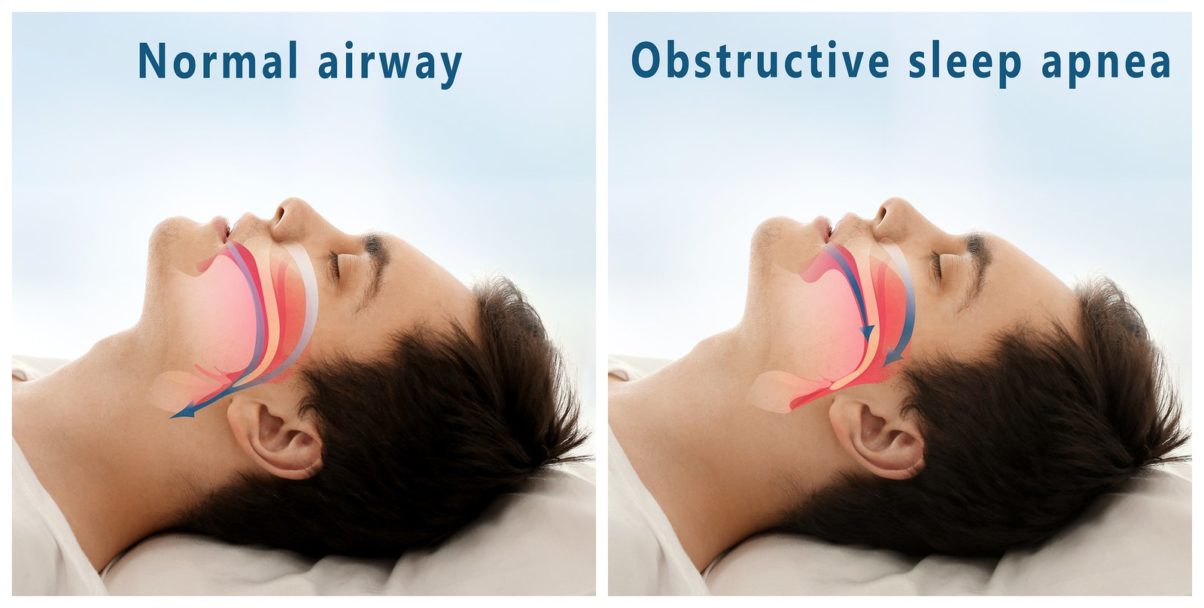Countless people suffer from obstructive sleep apnea (OSA), a serious disorder which occurs when a person’s regular breathing is interrupted during sleep. Here’s how OSA can affect your oral health, along with some recommendations for treating this all-too-common problem.
What Is Sleep Apnea?
The most common form of sleep apnea is OSA. It occurs when airflow is blocked by soft tissue which collapses into the back of the throat during sleep. There’s also a less-common form of the condition, called central sleep apnea, which results due to problems in the way the brain signals the breathing muscles.
While anyone can develop sleep apnea, certain risk factors make it more likely. These include obesity, smoking, genetic traits and using sedatives, alcohol or tranquilizers.
How it Affects Your Health
Unfortunately, research has linked sleep apnea to a myriad of deadly health problems, including stroke, heart disease, Type 2 diabetes, metabolic syndrome, cancer and early death. Since people tend to breathe through their mouths when they have OSA, the condition can promote tooth decay by causing the mouth to dry out. People who suffer from sleep apnea also tend to experience snoring, headaches and daytime fatigue. They may also be at a higher risk of serious auto accidents since they often have trouble focusing due to inadequate sleep.
For all of these reasons, it’s important to identify potential problems as soon as possible, so you can get treatment before long-term issues arise.
The Role of Dentists
Many patients are surprised when their dentists ask about their sleep quality. One big reason for this is to address the potential of OSA, which can negatively impact a person’s oral health. Research indicates that dentists and hygienists can play a key role in helping patients identify an issue. They can also help discuss risks and treatment options for OSA.
The potential treatments for OSA include oral appliances, which can shift and support the jaw to help keep the airways from collapsing back into the throat. According to the American Dental Association, oral appliances can be quite effective at preventing sleep apnea in mild to moderate cases.
For less serious cases, you may be able to alleviate your sleeping apnea by adjusting the way you sleep. For more serious cases, you may need to try continuous positive air pressure (CPAP) or even surgery.
Whatever the case, it’s a good idea to talk to your dentist to see if you are showing signs of OSA. This is especially important since many people suffer from sleep apnea unknowingly. If your dentist determines that you have a problem, he or she can either refer you to a specialist or recommend an effective treatment based on your unique situation.



 Previous Article
Previous Article